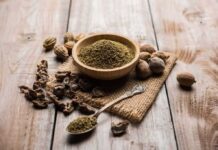
“Culture and history plunge directly into things, into stones, into wrinkles on human faces, in the taste of wine and oil, into the color of waves,” wrote Italian scholar Claudio Magris.
A centuries-old traditional diet has benefited tens of thousands of people in the place where the scholar lives. Following this diet, people increase their longevity, improve their life quality, and even reduce their risk of cancer. The diet is called the Mediterranean diet.
The Mediterranean diet was inscribed on the Representative List of the Intangible Cultural Heritage of Humanity by the United Nations Educational, Scientific and Cultural Organization (UNESCO) in 2013. It is a three-dimensional system that includes a set of skills, knowledge, rituals, and traditions concerning crops, harvesting, fishing, animal husbandry, conservation, processing, cooking, and the diet itself.
Another unique feature of this time-honored dietary pattern is that most of the ingredients used have cancer-fighting properties.
Why Is the Mediterranean Diet Capable of Fighting Cancer?
A key factor is that cancer cells require blood vessels to supply nutrients, and the Mediterranean diet blocks the nutrient supply pathways.
Cancer cells secrete or make their surrounding tissues to produce angiogenic factors that form a vascular system which supports these cancer cells. In addition, cancer cells have to enter the circulatory system through these new blood vessels to metastasize and spread.
Scientists have come to a consensus: The key factor to fighting cancer is the inhibition of angiogenesis. They have also developed different types of anti-angiogenic agents to treat cancer.
The components of many food items in the Mediterranean diet are natural anti-angiogenic agents. They can play the role of inhibiting angiogenesis in the human body and preventing the imbalance of blood vessel growth to effectively prevent and even control cancer. Adherence to the Mediterranean diet is indeed associated with lower cancer incidence.
6 Anti-Cancer Foods in the Mediterranean Diet Starve Cancer Cells to Death
The Mediterranean diet is characterized by the use of virgin olive oil as the main lipid. It contains a certain amount of vegetables, fruits, legumes, cereals, nuts, and a relatively large portion of fish. The diet has a low intake of red meat, a moderate or low intake of dairy products, and a low quantity of red wine.
-
Olive Oil
Virgin olive oil is obtained by mechanical means that do not lead to any alterations in the oil composition. Olive oil contains both saponifiable and unsaponifiable components. The saponifiable component consists mainly of triglycerides, accounting for 98 to 99 percent of the olive oil. The unsaponifiable component mainly includes vitamin E, phytosterols, polyphenols, and triterpenoids, accounting for 1 to 2 percent of the olive oil.
Oleuropein, a natural compound found in olive oil, has the ability to modulate several oncogenic signaling pathways and is used in the prevention and treatment of cancer. Highly compelling animal studies have shown that oral administration of oleuropein instigates complete tumor regression within 9 to 12 days.
Oleuropein can be further converted into hydroxytyrosol with anti-angiogenic properties. Hydroxytyrosol is one of the most abundant phenols contained in olive oil.
Olives, olive tree leaves, and virgin olive oil all contain a nutrient that exhibits significant anti-cancer and anti-angiogenic properties—triterpene acid. There are many more anti-cancer substances with anti-angiogenic properties present in olive oil, such as flavonoids, carotenoids, vitamin E, diterpenoids, and plant sterols.
-
Vegetables, Fruits, and Red Wine
Rich polyphenols with anti-cancer activity are found in vegetables, fruits, and red wine. Some of the anti-cancer effects are mediated by their anti-angiogenic mechanisms.
Resveratrol, a non-flavonoid polyphenol, is found in the skin of red grapes, peanuts, and berries. Interestingly, the anti-angiogenic effects of resveratrol have been proven to be two-sided: high-dose resveratrol induces angiogenesis, while low-dose resveratrol is anti-angiogenesis.
Fisetin exists in red wine, various fruits (e.g., strawberries, apples, mangoes, persimmons, kiwis, tomatoes, and grapes), vegetables (e.g., onions and cucumbers), and nuts.
The antiangiogenic efficacy of fisetin can inhibit the metastasis of glioma cancer cells and angiogenesis in melanoma, and can decrease microvessel density in lung carcinomas.
-
Cold-Water Fish
The Mediterranean diet also features the consumption of cold-water fish that are rich in lipids, including sardines, tuna, mackerel, and anchovies.
Cold-water fish are fish that survive in low temperatures, and they are rich in omega-3 fatty acids. The long-chain omega-3 polyunsaturated fatty acids (PUFAs) cannot be synthesized in the human body and must be consumed through diet.
Omega-3 PUFAs have multiple health benefits, including anti-angiogenesis and cancer suppression. They inhibit the induction of angiopoietin-2 (Ang2) and major proangiogenic processes while omega-6 PUFAs do the opposite.
Studies have found that mutiple omega-3 PUFAs, including docosahexaenoic acid (DHA) and eicosapentaenoic acid (EPA) commonly found in fish, can inhibit the induction of Ang2 by approximately 50 percent.
-
Tomatoes
One of the essential gastronomic elements of the Mediterranean diet is tomatoes, which are rich in vitamin C, potassium, folic acid, carotenoids, and lycopenes. These constituents have been demonstrated to have cardiovascular protective and anti-cancer properties.
Tomato lycopene, in particular, may prevent and inhibit multiple cancers, such as lung, liver, and prostate cancers, through anti-angiogenesis. British researchers surveyed the diet of nearly 50,000 people and found that among male participants, the group with the highest lycopene intake was 28 percent less likely to develop prostate cancer than the group with the lowest intake.
-
Coffee
Coffee included in the traditional Mediterranean diet is the boiled, unfiltered Greek coffee, which is rich in kahweol, polyphenols, and other antioxidants. Animal experiments have shown that kahweol exhibits anti-angiogenic, anti-cancer, and anti-inflammatory properties.
-
Herbs
Some culinary herbs and spices are used in preparing the Mediterranean diet.
Among them, dry oregano contains a high proportion of polyphenols. The ethanol extract of oregano can reduce the expression of the epidermal growth factors in breast cancer tumor cells, inhibiting these cells’ angiogenesis.
Another commonly used herb in the Mediterranean diet is rosemary. It contains carnosol and carnosic acid, which can inhibit the growth of vascular endothelial cells and induce their apoptosis, further assisting with cancer prevention.
Moreover, the Mediterranean diet emphasizes hospitality, neighborliness, intercultural dialogue, and creativity, as well as a way of life guided by respect for diversity. Such a positive attitude towards life promotes people’s mental health, which is vital to physical health maintenance.
Important Notice: This article was originally published at www.theepochtimes.com by Flora Zhao And Health 1+1 where all credits are due.
Disclaimer
The watching, interacting, and participation of any kind with anything on this page does not constitute or initiate a doctor-patient relationship with Dr. Farrah™. None of the statements here have been evaluated by the Food and Drug Administration (FDA). The products of Dr. Farrah™ are not intended to diagnose, treat, cure, or prevent any disease. The information being provided should only be considered for education and entertainment purposes only. If you feel that anything you see or hear may be of value to you on this page or on any other medium of any kind associated with, showing, or quoting anything relating to Dr. Farrah™ in any way at any time, you are encouraged to and agree to consult with a licensed healthcare professional in your area to discuss it. If you feel that you’re having a healthcare emergency, seek medical attention immediately. The views expressed here are simply either the views and opinions of Dr. Farrah™ or others appearing and are protected under the first amendment.
Dr. Farrah™ is a highly experienced Licensed Medical Doctor certified in evidence-based clinical nutrition, not some enthusiast, formulator, or medium promoting the wild and unrestrained use of nutrition products for health issues without clinical experience and scientific evidence of therapeutic benefit. Dr. Farrah™ has personally and keenly studied everything she recommends, and more importantly, she’s closely observed the reactions and results in a clinical setting countless times over the course of her career involving the treatment of over 150,000 patients.
Dr. Farrah™ promotes evidence-based natural approaches to health, which means integrating her individual scientific and clinical expertise with the best available external clinical evidence from systematic research. By individual clinical expertise, I refer to the proficiency and judgment that individual clinicians acquire through clinical experience and clinical practice.
Dr. Farrah™ does not make any representation or warranties with respect to the accuracy, applicability, fitness, or completeness of any multimedia content provided. Dr. Farrah™ does not warrant the performance, effectiveness, or applicability of any sites listed, linked, or referenced to, in, or by any multimedia content.
To be clear, the multimedia content is not intended to be a substitute for professional medical advice, diagnosis, or treatment. Always seek the advice of your physician or other qualified health providers with any questions you may have regarding a medical condition. Never disregard professional medical advice or delay in seeking it because of something you have read or seen in any website, video, image, or media of any kind. Dr. Farrah™ hereby disclaims any and all liability to any party for any direct, indirect, implied, punitive, special, incidental, or other consequential damages arising directly or indirectly from any use of the content, which is provided as is, and without warranties.








